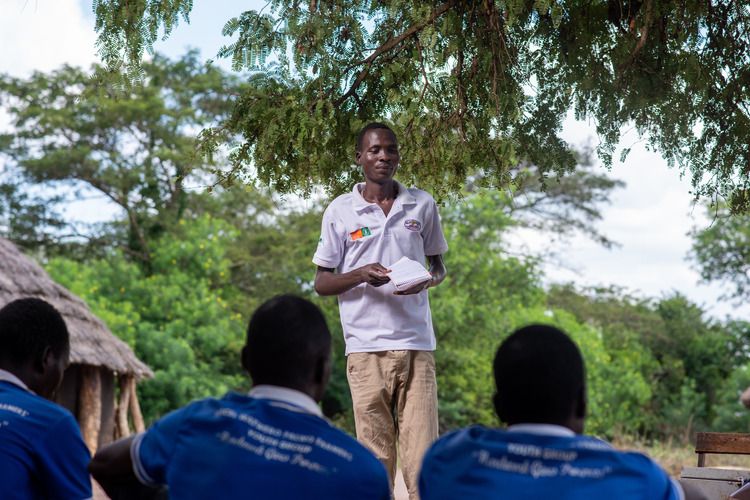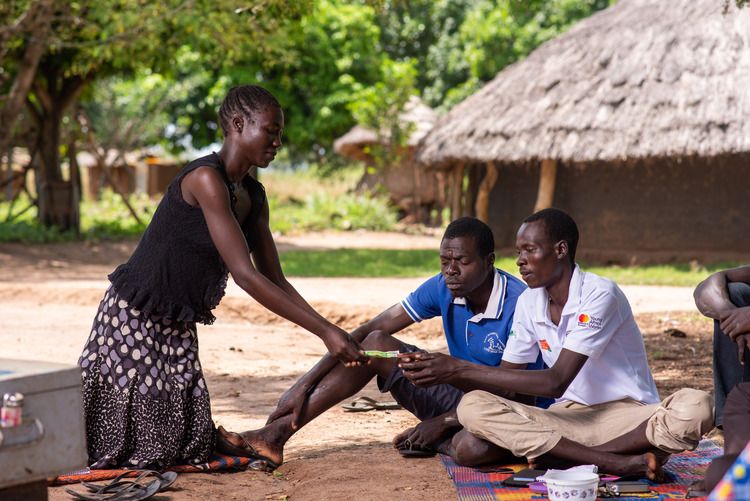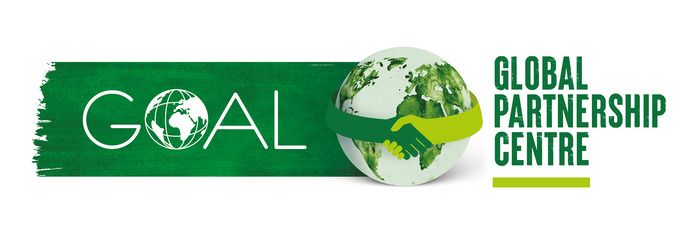 Blogs
Blogs
July 10, 2024 • 5 min read
GOAL's Global Partnership Centre (GPC) was established in mid-2023 with generous support from Irish Aid. The GPC seeks to strengthen the capacity of our local partners by providing technical support and guidance while helping them cultivate new competencies, strategies, systems, and structures to improve their overall effectiveness.
The Global Partnership Centre
Under our Irish Aid commitment, the Global Partnership Centre (GPC) has four strategic goals, one of which is to facilitate strategic networking and collaboration between GOAL’s partner agencies. To this end, the GPC began hosting monthly Community of Practice webinars for all GOAL Global partners in April 2024. These quarterly webinars provide partners with opportunities to exchange ideas, challenges and solutions, access free expertise, and grow their networks.
Community of Practice
These webinars demonstrate the value of learning through context. By exchanging questions and personal experiences, our attendees develop a deeper understanding of development and can integrate these insights into their own practices. The webinars also support constructive dialogue by facilitating intentional collaboration among our attendees, leading to tangible results and meaningful change.
Helping partners initiate and sustain learning fosters an environment of self-awareness and reflection. By embracing diversity and nurturing innovative ideas, the Community of Practice webinars have successfully established a culture of collaboration, continuous learning, and adaptation among our local partners.
Each webinar focuses on a specific theme, chosen by our partners and supported by subject matter experts. This month, that theme was Safeguarding. One of our local partners in Uganda, MUCOBADI, gave a presentation on their own journey of growth, highlighting how they developed a culture of safeguarding within their organisation with technical guidance and support from GOAL.

Two young women in Uganda participating in the Young Africa Works: Markets for Youth programme, implemented by GOAL and MUCOBADI
Empowering Local Partners
MUCOBADI developed its Safeguarding Policy with financial and technical support from GOAL. Using the learnings and insights gained from supporting MUCOBADI to complete this process, the GPC is extending similar support to other GOAL partners.
MUCOBADI, founded in 2000, is a Uganda-based civil society organisation and humanitarian development agency. The organisation implements community resilience and long-term development programmes aimed at addressing the socio-economic causes of poverty and inequality.
MUCOBADI is one of GOAL’s local implementation partners for the Young Africa Works: Markets for Youth programme in Uganda. The programme uses a market systems approach to help 300,000 young Ugandans access dignified and fulfilling work in the agricultural sector.
This approach aims to reduce poverty by enhancing the capacities of people in vulnerable communities to integrate and play key roles in the mainstream markets that provide them with jobs, income and access to services. GOAL aims to be at the forefront of humanitarian safeguarding practices by integrating safeguarding throughout our market system programmes.
Independently, MUCOBADI is committed to tackling the root causes of poverty through a community-based approach. This approach aims to support society’s most vulnerable members, including women and people living with disabilities. Since partnering with GOAL, MUCOBADI has developed its first Safeguarding Policy, appointed safeguarding focal points, and is now building a culture of safeguarding within the organisation.

A community facilitator leading a meeting of his local Village Savings & Loans Association (VSLA), supported by MUCOBADI.
Building a Culture of Safeguarding
Every humanitarian organisation should have a robust safeguarding policy that outlines how their staff, volunteers, suppliers, and contractors are expected to behave when engaging with community members during project activities. Local partners should have a code of conduct, a safeguarding policy, a safeguarding focal point, and clear reporting and investigation procedures.
MUCOBADI developed its Safeguarding Policy with financial and technical support from GOAL. Staff members then received comprehensive training on the policy and signed the code of conduct to ensure the learnings from the training had been internalised.
MUCOBADI endeavours to embed safeguarding into its organisational culture through consistent communication, such as regular meetings and newsletters. This has fostered an environment where staff members feel comfortable voicing concerns about safeguarding or violations of the safeguarding policy. Safeguarding has also been integrated into the recruitment and tender processes to ensure that all prospective employees, suppliers, and contractors are aware of MUCOBADI’s commitment to safeguarding from the outset.
Integrating Safeguarding into Programming
MUCOBADI has integrated safeguarding measures into all its programmes, which support some of Uganda’s most vulnerable groups, including children, women, and people with disabilities. To identify safeguarding risks and vulnerabilities, MUCOBADI’s programme team conducts stakeholder consultations and assessments when designing and planning projects. The focus is on proactively mitigating risks before they occur rather than reacting to issues after they arise.
MUCOBADI is also building a culture of safeguarding by including safeguarding indicators in its Monitoring, Evaluation, and Learning (MEAL) framework, enabling data collection and analysis to address concerns and integrate participant feedback into programming. Programme implementation teams from MUCOBADI are also raising awareness about the importance of safeguarding within the communities they serve. This emphasis has improved interpersonal relationships between community members and has increased trust between project participants and programme staff.
MUCOBADI regularly reviews its safeguarding principles to ensure they remain relevant in the ever-changing humanitarian context. Vulnerable groups are often excluded from community discussions and decision-making processes, making them less likely to participate in MUCOBADI’s projects. However, by integrating safeguarding into programming, MUCOBADI has reported an increase in project participation amongst women and people with disabilities.
Since MUCOBADI developed its Safeguarding Policy, the organisation has acquired additional funding due to the growing donor demand for organisations to integrate safeguarding measures into programming.

A woman participating in her local Village Savings & Loans Association (VSLA), supported by MUCOBADI.
Looking Forward
Going forward, MUCOBADI now has the capacity to identify and address future challenges related to safeguarding. One challenge is that there are limited resources to implement safeguarding activities, especially when MUCOBADI is sharing the cost with other partners.
To address this issue, MUCOBADI is mobilising safeguarding resources by integrating safeguarding into all of its project proposals. For the organisation, safeguarding is not a standalone budget item or a series of standalone activities; it is woven into all project plans and activities as a cross-cutting strategy.
Looking forward, MUCOBADI is still building a culture of safeguarding within the organisation and aims to accumulate enough resources to begin implementing standalone safeguarding activities outside of existing programmes. For now, the integration process is being facilitated by MUCOBADI’s consistent efforts to strengthen documentation and research about safeguarding in the context of humanitarian programming.
Learn more about the Global Partnership Centre.

